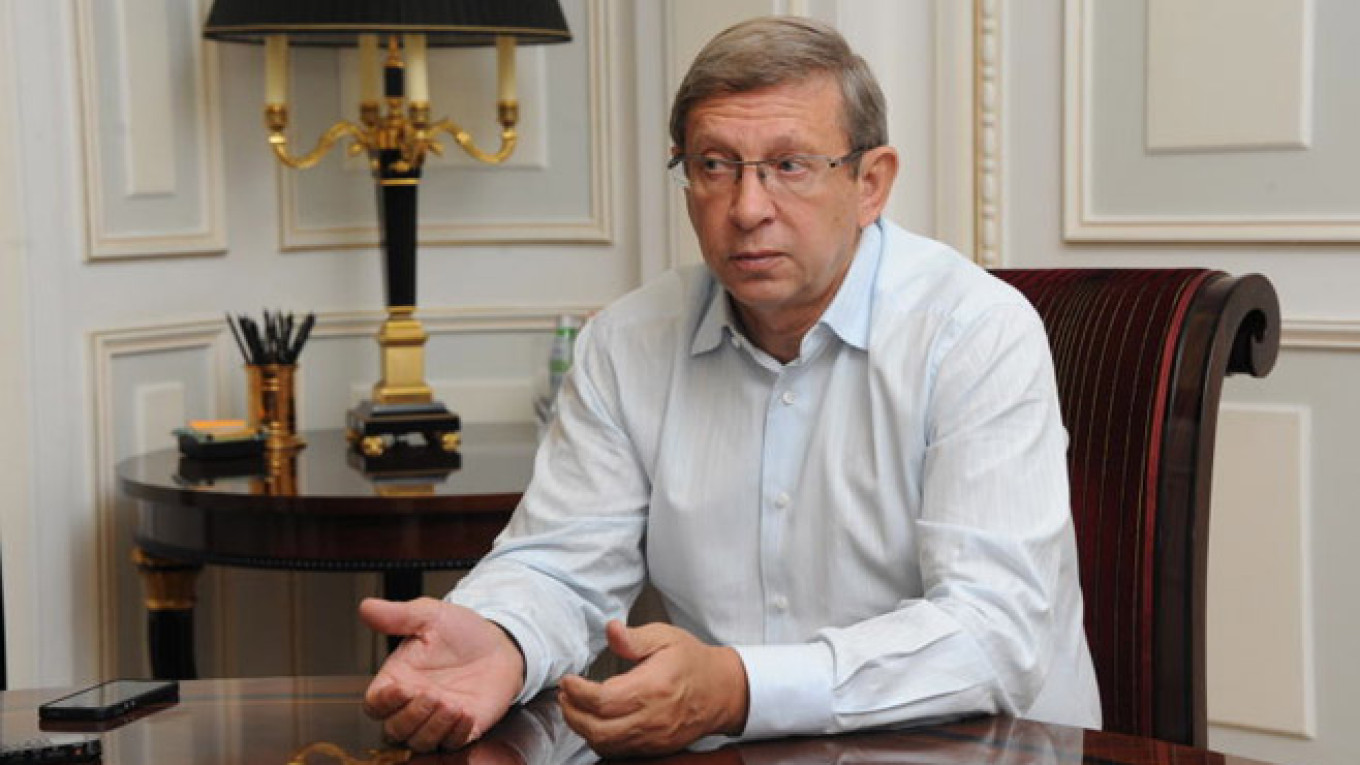The early September arrest of Vladimir Yevtushenkov, the majority owner of the industrial conglomerate Sistema and one of Russia's richest men, has inevitably invited comparisons with the arrest of Mikhail Khodorkovsky in 2003.
Khodorkovsky's conviction and the breakup of his oil company, Yukos, recast the Kremlin's relations with Russia's private business owners and heralded the rise of state-owned Rosneft as a major player in the Russian energy industry.
The two cases are superficially similar. Like Khodorkovsky, Yevtushenkov appears to have overestimated his level of protection and found himself in open conflict with Rosneft head Igor Sechin, over Sistema's ownership of Russia's seventh-largest oil producer, Bashneft.
As with Khodorkovsky, the filing of five sets of criminal charges against Yevtushenkov related to the acquisition of another oil company, Bashneft.
Yet there is a crucial difference between the two. Unlike Khodorkovsky, Yevtushenkov was considered loyal to his political masters. In fact, Sistema even acquired a controlling stake in Bashneft in 2009 at the instigation of then-President Medvedev.
It is hard to escape the conclusion that Putin has deliberately chosen to make an example of Yevtushenkov and send a signal to keep big business on its toes. The core message is that there are new rules and no one is untouchable.
Why has Putin chosen now to remind the business elite who is in charge? The answer is almost certainly related to the multiple pressures on the Russian economy resulting from sluggish growth, the increasingly visible effects of Western sanctions and recognition that the boom years are over. This is increasing the competition for rents among business groups.
As Russia's former long-serving Finance Minister Alexei Kudrin noted recently, Russia will remain dependent on Western capital and technologies for its development. He forecast that if sanctions remain in place, they could lead to several years of economic stagnation teetering on recession.
Over recent months, it has become clear that a hawkish group is in the ascendancy in the Kremlin that cares little for economic considerations. The "economic bloc" in the government has found itself marginalized, with decision-making left to an increasingly narrow group around Putin.
The hasty passage of a law through parliament restricting foreign ownership of media outlets, as well as debate in government circles about cutting off Russia from the global Internet in the event of crisis are further signs that Russia is retreating into a traditional "besieged fortress" mentality.
The Yevtushenkov affair is an indication of the fragility at the heart of Russia's highly personalized system of power. Western sanctions are having a rapid impact because they are reinforcing broader economic weaknesses that the current Russian system is unable to counter. It cannot reconcile its survival instincts with the need for long overdue structural reforms.
As a result, Putin's social contract over the past 15 years, which delivered improved living standards in return for popular acceptance of limitations on civic freedoms, has been turned on its head.
To compensate, Putin can now only offer the population a defiant reassertion of Russia's influence in Ukraine but at the price of much harsher restrictions on civil society and confrontation with the West.
In these circumstances, it is logical for Putin to fear dissent among the business elite and the formation of interest groups that could unite to challenge his course in Ukraine. By showing that a loyal figure such as Yevtushenkov is not invulnerable, Russia's business leaders have been put on notice that the slightest sign of protest could lead straight to a prison cell.
John Lough is an associate fellow with Chatham House's Russia and Eurasia program.


